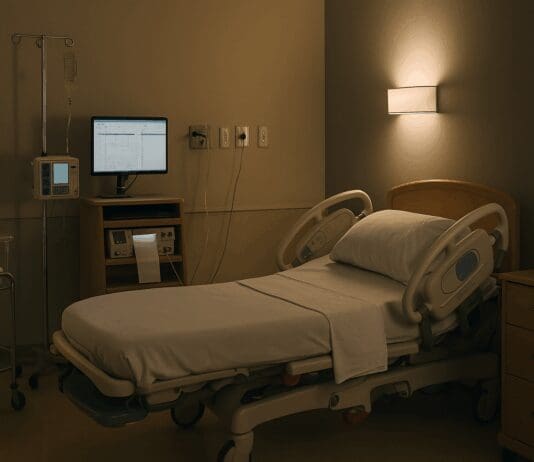Home Maternity
Maternity
Pregnancy is a transformative journey filled with excitement, challenges, and countless questions, and HerHealthWatch is here to provide the support and information every expectant mother needs. Our Maternity section covers everything from prenatal nutrition and exercise to labor preparation, postpartum recovery, and newborn care. Whether you’re navigating morning sickness, learning about essential maternity gear, or preparing for a smooth childbirth experience, we offer expert guidance on every step of the journey. With a focus on maternal mental health, holistic birthing options, and the latest advancements in prenatal care, we help mothers make informed decisions that support both their well-being and that of their baby.
Welcoming a new baby into the world is a transformative experience that brings with it a host of physical, emotional, and lifestyle changes. Amid the excitement and joy, the postpartum period can also be accompanied by significant discomfort and healing challenges for new mothers. One of the most effective, yet often underappreciated, tools in easing this recovery journey is the use of postpartum wipes. These specialized hygiene products are crafted to support sensitive skin, minimize irritation, and offer much-needed relief during a time when comfort is essential. By offering gentle cleansing and therapeutic properties, postpartum wipes have become a staple in maternity care for countless women seeking both practical and soothing solutions after childbirth.
Pregnancy marks one of the most transformative periods in a woman’s life, both physically and emotionally. As the body undergoes immense changes to nurture new life, so too does the mind experience shifts in priorities, anxieties, and anticipations. Amidst the whirlwind of prenatal care, nursery planning, and hormonal fluctuations, pregnant yoga classes have emerged as a holistic approach to support the well-being of expecting mothers. These specialized yoga sessions are not just about physical activity; they represent a compassionate integration of breath, movement, and mindfulness tailored to the unique needs of pregnancy. From easing back pain and improving circulation to preparing mentally for childbirth, pregnant yoga offers a safe sanctuary for nurturing both mother and child.
Prenatal vitamins support the health and well-being of both the mother and the developing baby during pregnancy. They are formulated to provide essential nutrients...
Entering the third trimester is a pivotal milestone in any pregnancy journey, marked by both anticipation and physical transformation. As the body prepares for labor and delivery, maintaining strength and comfort becomes increasingly important. One of the most accessible and effective ways to nurture both physical well-being and emotional balance during this stage is through yoga. Practicing yoga positions for pregnancy third trimester offers expecting mothers a practical tool to ease discomfort, enhance circulation, and maintain a connection to their changing bodies in a deeply empowering way.
Pregnancy is a transformative journey, not only for the body but also for the mind and soul. From the earliest weeks of conception, expectant parents begin navigating a complex world of medical appointments, prenatal vitamins, and ever-changing symptoms. Amid all these new experiences, one question often arises, particularly among first-time parents: when to take birthing classes? This query is far from trivial. It touches on crucial aspects of maternal readiness, emotional well-being, and clinical preparedness for labor. Choosing the right time to enroll in childbirth education isn’t simply a matter of scheduling convenience—it can influence how empowered, informed, and mentally prepared a family feels as the delivery date approaches.
The early days of motherhood are filled with a blend of excitement, exhaustion, and an endless list of questions. For many new moms, the transition into breastfeeding introduces unfamiliar physical sensations, some of which may be surprising or even concerning. One such sensation that prompts frequent inquiry is the experience of tingling, numbness, or a pins-and-needles feeling in the breasts. It's completely valid to wonder, "why does my breast feel like pins and needles when breastfeeding?" This article aims to provide a detailed, medically grounded, and empathetically framed explanation of this phenomenon, offering both reassurance and evidence-based insights to help new mothers understand what their bodies are going through.
Understanding the transition into motherhood means acknowledging the many physical and emotional adjustments that accompany postpartum recovery. One deeply personal aspect of this journey is regaining intimacy after childbirth, including addressing when it’s safe to orgasm after giving birth. For many new moms, questions around sexual health and recovery can feel taboo or uncomfortable to ask, but they are valid and essential to overall well-being. Sexual healing after delivery is nuanced and multifaceted, encompassing physical recovery, emotional readiness, and hormonal influences. While each woman’s postpartum journey is unique, gaining clarity on what to expect can alleviate anxiety, strengthen relationships, and promote healing.
Pregnancy marks one of the most transformative and nutritionally demanding periods in a woman's life. Amid the influx of guidance on prenatal care, the importance of specific micronutrients often becomes buried beneath broader dietary recommendations. Yet certain vitamins hold critical roles that cannot be overstated. Among these, the synergistic functions of niacin vitamin B6 stand out as pivotal to the health of both the mother and her developing baby. Proper intake of these nutrients influences neurological development, energy production, and hormonal balance, making their role in maternal wellbeing an essential consideration in pregnancy nutrition.
Welcoming a new life into the world is a profound journey, one filled with anticipation, uncertainty, and meticulous preparation. Among the myriad concerns expectant mothers face, a pivotal question often emerges: when will hospital admit you for labor? This inquiry reflects a deeper need to understand not just the physical signs of labor but the clinical and logistical benchmarks that hospitals use to determine admission. Being informed empowers mothers to advocate for themselves, reduces unnecessary stress, and enhances the overall birth experience
The journey into motherhood brings with it profound physical and emotional changes, especially after a cesarean delivery. Among the many questions new mothers have during postpartum recovery is whether and when they can return to physical activities like swimming. Swimming after c section is a topic of increasing interest, not only because it offers a refreshing way to exercise but also because it supports muscle rehabilitation and mental wellness. For many new moms, swimming represents a joyful, low-impact way to reconnect with their bodies, regain strength, and feel more at ease. Yet, this activity must be approached with caution and preparation to ensure safety and efficacy.












